Perhaps most importantly, it really made me think about the perspective driving many LDS dating decisions and the resulting challenge it creates. Far too many filter decisions about not just who to date but who they talk to through the perspective of the natural man or natural woman. Seen only through those eyes, we’ll never see the truth that everyone is beautiful. A demanding lifetime pursuit Let’s start with a disclaimer: In the words of Indiana Jones’s father, “I’m as human as the next man.” Conquering the natural man or the natural woman takes a lifetime, so we shouldn’t expect anyone to be completely covenant men or covenant women during their dating journey. But we can expect improvement. When I compare the man I am today with the man I was 10 or 20 years ago, those men were definitely more aligned with the natural man. I’m not completely a covenant man, but I’ve made gains in that direction, and I’ve got the receipts to back that up. That said, I still have work to do. That’s part of the value I gained from watching this documentary. When I first saw a full body shot of Lizzie, I recoiled. I wasn’t seeing the beautiful soul of the person within, just the shell of flesh and bone that encased it. The portion of the natural man still within me found that shell repulsive. A common blind spot  I’d expect most LDS singles to respond similarly because that’s how most people respond. Natural men and women see only the exterior. Those inner qualities of character which have value in eternity have no value to the natural man and natural woman. When that natural mindset drives dating decisions, LDS singles will always discount worthy potential companions who’d be ideally suited for them because those options aren’t “top shelf.” They could be sitting next to the very person who could make them maximally happy and never know it. Worse still, most LDS singles aren’t even aware of how natural their mindset is. They equate conquering the natural mindset with keeping the standards, and because they keep the standards, they don’t see themselves as a natural man or woman. That self-image blinds them from seeing how well their dating decisions actually align with the natural mindset. And it’s that mindset obstructing their dating journey. They’re blind, and they think they see just fine. A more joyful view That’s where this documentary enters stage right. Natural men value youth and external beauty. Lizzie has neither, so of course she’s single. But as I listened to her story with an open mind and an open heart, I experienced a transformation. I began seeing more and more the beauty living inside her. And that inner beauty colored my view of her exterior. After an hour and 18 minutes, what at first seemed repulsive had become welcome in my inner circle. What changed it for me can change it for LDS singles in their dating journey. Far too many insist so much on having “top shelf” they won’t even give the time of day to anyone perceived to be less. But the truth is everyone is more. And you’ll never see that vision until you embrace an open mind and heart while spending sufficient time with someone. Everyone is beautiful. Acting on that belief at first is an act of faith. You act as though you see that truth even though you don’t. Pressing forward in that walk of faith, eventually you reap the reward of your diligence and patience as the vision opens up to you. And that will bring you more joy in your journey.
0 Comments
Faith clarifies vision We all judge too much by what we see directly around us, and this feature especially manifests itself in dating. Far too often LDS singles look around for someone they’d like to date and, not seeing what they define as acceptable, quickly become discouraged. That scene repeated often enough leads to hopelessness in the future. Bright futures start with faith. Faith helps you see what’s there but not readily seen. In the context of dating, this could mean, first, you don’t see that acceptable candidates around you because they aren’t doing what you normally do and going where you normally go. When you branch out and see new vistas, you’re more likely to cross paths with them. The world is a bigger place than your own backyard. Second, faith helps you see the person you discounted may be the one you’re looking for. So many singles insist on having the “perfect” partner that they reject knowing many less-than-top-shelf candidates who’d make good partners. Falsely assuming only the best can produce joy in life has kept and continues to keep many LDS singles single long than need be. Action feeds power Lack of hope in the future often attends feeling powerless. A focus there will lead only to despair. To change your reality, you must change your focus. Instead of focusing on the “evidence” for why what you want won’t happen, seek out reasons to believe. Those reasons to believe will be easier to embrace when you take proper action. I’ve never seen anyone busy working to make his or her dreams a reality feeling powerless, and neither have you. That’s because it’s impossible. When you busy yourself with the business of doing, you’re so immersed in evidence of your own power you can’t feel powerless. It’s when you’re not doing anything that feelings of powerlessness can take hold. Start feeling that power and savoring your life by listing what makes up your best life. If you could have your best life, what would it look like? What would you be doing? Put those activities on your list. Then start to fill your calendar with those activities. So if you think your best life involves horse riding, great. When are you going to ride that horse? If you think your best life involves learning how to crochet, great. When will you learn that? Whatever you want your life to be, start doing what you can to live that life. Don’t let what you lack prevent you from embracing — and finding joy in — what you already have. Partner with Him While you’re making that list, don’t forget to partner with the Lord. When you include Him in crafting your best life, you’ll get there much more easily than if you go it alone. He might even help you see that what you think is your best life really isn’t. Make the course correction He suggests, and you’ll not leave any joy on the table. The key to maximizing joy in life is focusing on fundamentals. Far too many LDS singles focus on finding ways to cross paths with that special someone, all the while forgetting that if they aren’t agreeable enough, no quantity of paths crossed will produce the desired result. When you focus first on living your best life as much as you can, you make yourself more agreeable and your life more inviting. That life is also the more joyful one, and that joy will only increase your attractiveness to a potential companion. The future really is as bright as your faith. When you focus on fundamentals, you can take more effective action. More effective action produces more effective results. More effective results will help you feel more powerful and desirous to do more, and thus the cycle continues ever upward. And that will bring you more joy in your journey.
What impressed me the most in that meeting was a Japanese sister. As she rambled on in her broken English from one topic to the next, I struggled to make sense of what she was trying to say. But then she spoke two words that captured my attention: Expect miracles. Nourish your thinking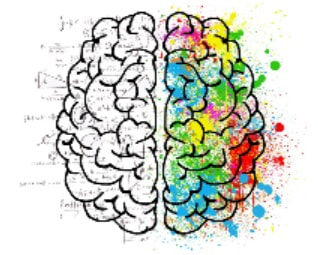 I have no idea why she said those two words. Perhaps she was referencing President Nelson’s address from the last Conference on spiritual momentum. Perhaps she was talking about something else related to miracles. Or perhaps she was talking about something completely unrelated and the Spirit prompted her to say those words because I needed to hear them. I say I needed to hear them because they captured my attention. And as I began pondering those words and remembering what I said about them in a recent episode of this program, I immediately felt prompted to make them the focus for this episode of Joy in the Journey Radio. So perhaps there is someone out there who needs this message. Regardless of the need, I do believe this message is important for all LDS singles to review on a regular basis. We need to nourish our thinking with better assumptions, better perspectives, better attitudes, and better self-talk. The idea of expecting miracles encompasses all four of those elements. Reformat and reboot For example, too many LDS singles assume the future will be just like the past. They place so much emphasis on the choices others make, they do not perceive the power inherent in their own choices. A discouraging outlook encourages a despondent attitude. And all of these elements then find reinforcement in self-talk: “What’s the point of trying?” “Why would anyone choose me?” “I’m not good enough.” “I’ll never be loved.” All these messages played on autopilot via habits of thinking reinforce the faulty assumptions, the diminished perspectives, and the failing attitudes that will never lead to success. Expecting miracles reverses all that. Expecting miracles in your life assumes miracles can and will come to you. Expecting miracles exchanges the perspectives focused on the past for ones focused not just on the future but on a future that’s very different from the past. Expecting miracles encourages an optimistic positive attitude. And expecting miracles encourages uplifting self talk: “I’ll keep trying because I will succeed.” “My miracle will choose me.” “I’m more than good enough for my miracle.” “My miracle will happen because I’m already loved.” There’s a night-and-day difference between expecting miracles and the less effective ways of thinking many LDS singles choose to tolerate. Many so choose because they simply aren’t aware of the difference. But having that awareness, why would you choose not to expect a miracle? Why would you cheat yourself of the glorious best life you could have? Position yourself better Of course, miracles are more likely to come and are therefore easier to expect when you get your game on. Put yourself in a good financial position. Serve faithfully in your Church calling. Take care of your responsibilities, including those involving self-care. These changes likely won’t come overnight, but every effort to move in that direction moves you closer into a space where miracles can more easily come. My friend provides a good example. His real interest in attending that Sunday School class was a special “person of interest” (as he calls her). During the drive back, he told me they’d met only one month ago. I was surprised to hear that. Given the way they hugged each other in the parking lot before leaving, I thought they’d known each other longer. But apparently they just hit it off really well. I’d call that a miracle. So expect miracles in your life. Believing in and opening yourself up to possibility can improve your probability of success. By working as you can on improving yourself and your situation, you can move yourself into the space where your miracle can more easily come. That miracle can be the door that swings your best life wide open to you. And that will bring your more joy in your journey.
What impressed me about Sister Porter’s approach was her use of singles to exemplify her ultimate message of the valuable contribution LDS singles can make in their world. It’s a message we’ve been promulgating here at Joy in the Journey Radio by encouraging LDS singles to adopt a personal ministry. We all can powerfully influence those around us for good, and we’ll make that difference in others’ lives when we heed the lessons at the well. You determine your future I love the introduction Sister Porter gives to her remarks. She was happily married and serving with her husband in the Church in Eastern Europe. Then her husband’s health took a turn for the worse, and in short order she found herself single. I don’t know if she actually thought of herself as single. She didn’t mention that in her address, and I know many who’ve lost a spouse to death still consider themselves married by virtue of their temple covenants. If your spouse is not in this life living with you, you may be married for the purposes of eternity, but for the purposes of this life, you’re single. You also have a wonderful opportunity to effect much good. It starts when you realize your past and present circumstances don’t determine your future. In referencing her unexpected return to singlehood, Sister Porter shared,
The woman at Jacob’s well exemplified this attitude, which applies just as much to men as it does to women. She did not allow her past or present condition to determine her future. She chose to testify of the Savior, and her choice blessed many others. You have the power  Likewise, LDS singles can chose to embrace a new future by making the higher choice. Too often LDS singles play the victim, thinking that their past is prologue and nothing they do will make any difference. But that’s true for you only if you decide it is. You’ve been blessed with agency, the second most underappreciated gift of God. And it’s the second most underappreciated gift of God because so many simply don’t realize the power that’s in them because of this gift. Sister Porter recognized it. After quoting D&C 58:26-28 and emphasizing that last phrase in the verses — “for the power is in them” — she declared,
You’re not in this alone! No matter your past or present circumstances, you can choose to let your light shine, share your goodness with others, and put a dent in the universe. With the creator of heaven and earth at your side, why choose anything else? You make the difference This is how great ends come out of small beginnings. The Lord is the Master Gardener, the one best suited to help you grow into the fullness of your potential. He can transform the seemingly meager contributions you make into extraordinary differences. Sister Porter shared three examples from the Master’s teachings that demonstrate this effect, one involving salt, one involving leaven, and one involving light. Each of these items in even seemingly small amounts makes a tremendous difference in their separate contexts. Likewise, though your efforts may seem small and inconsequential, you can make a tremendous difference in your world. Your salt can flavor the lives of others, your leaven can lighten their loads, and your light can disperse the darkness surrounding them. As Sister Porter taught,
Heed the lessons at the well and make the higher choice. When you do, the Savior can turn your seemingly small service into the difference others need in their lives. In easing the burdens of others, you’ll find your own burdens eased. In helping others grow, you’ll find your own growth. And that will bring you more joy in your journey.
And that’s the rub. Bettering our position to receive a miracle requires work, and most of us don’t want to work for our miracles. We just want them to appear. Yet miracles still follow universal law. Appropriate work on our part aligns us with the universal law governing the miracles we seek. That often involves delivering value, because at the end of the day, it’s all about value. Focus on fundamentals So many of our desired miracles involve other people using their agency to advantage us. The miracle of companionship is one such example. Yet this miracle like all others follows universal law, which begs the question: What laws govern the occurrence of this miracle? The answer resides in the fundamentals of the dating journey. Those who align themselves with the fundamentals position themselves to receive that miracle more easily. Those who don’t stumble and trip up over and over again. Stepping back and looking at the fundamentals, it’s easy to see they’re all about value. Arriving at any stage of the dating journey requires an agreement, and you secure any agreement by being agreeable enough. That means providing sufficient value. At the end of the day, it really is all about value. Do the work And that’s where work comes in. We can change ourselves and our environment to become more agreeable by offering more value and thereby position ourselves to receive more easily the miracle we seek. And we’re not in this alone. When we partner with the Lord, He’ll help us (1) to know what work we need to do and (2) to do that work. We start by understanding what value we offer today. Those who already offer great value have less to do, whereas those offering less value have more work to do. Either way, we should seek input from others when assessing the value we offer. We’re all inherently biased to overestimate the value we offer. That bias blinds us from many of the imperfections diminishing our value. Input from others combined with counseling with the Lord can help us overcome our inherent bias and blindness. So when that 400-pound single adult partners with the Lord and considers input received from others, the realization comes that losing weight and taking better care of one’s body will ease the arrival of the companionship miracle. Partnering with the Lord, that single adult seeks and follows guidance to assemble a plan and then involves the Lord in executing that plan. Losing weight then becomes not just a physical change but a spiritual adventure experienced step by step at the Lord’s side with the intention of easing a miracle into one’s life. Can we not feel the increased power behind this approach to securing miracles? It all starts with a focus on value. Hold the line As we work to improve the value we offer, we need to remember value has different meanings in different contexts. We also shouldn’t forget everything’s interconnected. For instance, value in the dating context isn’t value in the eternal context. We all already have immense value in eternity as children of God, but we all have different value when it comes to dating. The value of an attribute differs with context, but low value in one particular context often means a lack of attributes valued in that context. When we see ourselves lacking the valued attributes in the context of a desired miracle, we shouldn’t surrender to despair. Instead, we should partner with the Lord and get to work. We should look for invigoration in meeting the challenge and work with faith that, with the all-powerful Lord at our side, we can make any miracle happen. Making gains in one area of our lives can strengthen us in other areas, giving us a further boost towards making our miracle happen. At the end of the day, it’s all about value. Looking through that lens can provide a clarity of vision regarding needed changes. As we make those changes in partnership with the Lord, we can feel more confidence as we ease the miracles we seek into our lives and more gratitude when those miracles finally appear. And that will bring us more joy in our journey.
Focusing on incremental, one-percent improvements instead of some grand transformation intrigues me. I’m led to question not just what goals are best for me but the very process by which I determine those goals. After all, the process of improvement must be doable to mean anything. Focusing on being one percent better is not just doable but far more enriching than the alternative. Catch your vision Elder Dunn began his remarks by sharing the story of British cycling. For about a century, British bicycle racing teams won little distinction. Their performance was so poor some manufacturers refused to sell bicycles to them, for fear the association would irreparably tarnish them. But that changed in 2003 when a new coach, Sir Dave Brailsford, was hired. Sir Brailsford rejected using the latest trends and technology, preferring, as he put it, “the aggregation of marginal gains.” British cyclists began looking at everything they did and how they could improve by just one percent. The results were amazing. As Elder Dunn described,
He further explained,
After applying this approach over the past two decades, British cycling has amassed an impressive array of awards, including six Tour de France victories and more Olympic medals across all cycling disciplines than any other country. Clear your path This approach and these results together get me thinking. What if I’ve been going about this New Years resolution business all wrong? What if a shift in my focus towards small, one-percent improvements is what I’m really missing? I began by adjusting my goal creation process. Normally I start by reviewing my mission statement (which details my life purpose) and then my vision statement (which describes the characteristics of my ideal best self) to see if they still resonate with me. If they don’t, I make changes until they do. I then ask myself, “What portion of the gap between where I want to be and where I am will I work on this year?” and I make goals to address that portion. But I see now this approach invariably leads to biting off more than I can chew. I always justified it thinking it’s better to aim for the stars and miss than aim for a pile of dung and hit target. But by attempting too big a change, I set myself up for failure and disappointment. This year I’m trying a new approach. Keeping the mission statement review, I adjusted the vision statement review to describe what my best self looks like at the end of the year rather than the end of my life. I then scored myself on how well I meet that end-of-year standard today. Of course, that comparison finds me wanting, but that’s OK. Elder Dunn taught that
Stephen Covey declared the main thing is to keep the main thing the main thing. For achieving goals, the main thing is making sure to get just one percent better every day. Work your plan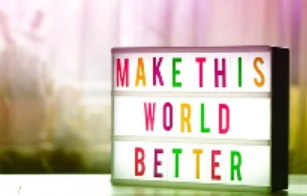 I tied each goal to a descriptive characteristic from my end-of-year vision statement to maintain alignment with my direction. Now the question each day is this: What will I do today to get just one percent better in each of my goals? I plan on evaluating my progress after each week and month to assess progress and adjust where needed. Focusing on improvements of just one percent each day seems like my missing essential element. I’ve already felt greatly encouraged applying this new approach for creating my goals, so we’ll see what develops in what I actually achieve. If making New Year’s resolutions you’re confident you won’t keep discourages you, or if the failures of previous attempts to achieve and become your best self dismay you, I invite you to consider focusing not on some grand transformation but rather on the one percent change you can make today. When you get one percent better each and every day, it won’t be long before you find yourself making remarkable progress. And that will bring you more joy in your journey.
Everything works that way. We all dream of having our best life, but to have that life, you must pay a price in faith, diligence, patience, and longsuffering in daily doing the small acts that over time will aggregate into a harvest of success. Most people don’t do that because it’s hard. But that’s precisely why it’s worth doing. With great diligence, you can have the positive changes you want in your life. Diligent in faith  Success isn’t complicated. Do the right things day after day, and eventually you get what you want. But like the seed in Alma’s parable, you don’t reap a harvest overnight. And that’s probably the hardest part of achieving success. We all have changes we want in our lives. But taking action day after day and not seeing the results you want can wear you down. Many quit the fight too soon. Because only action produces results, quitting the fight means taking no action, which means getting no results. So what can keep you in the fight when it gets hard? Alma provides an answer. He mentions diligence, but first he mentions faith. And that’s what can pull you through. With a vision of your life after you pay your price for what you want, you can keep on keeping on. I’ve used that in my PhD program. As I’ve felt the challenge increase, I remember teaching as an adjunct and relive how good it felt to work my dream job. My faith that overcoming my present difficulty will get me closer to the result I seek drives me through the difficulty. So it is with anything in life. Seeing the light at the end of the tunnel is really the other side of the mountain and not an oncoming train can help you push forward no matter how bleak your present position. Diligent in patience  As you push on in the darkness of the moment, the difficulty separating you from your desired best life isn’t just in doing what’s needed everyday but also in having to wait for results to materialize. We all want results on our schedule, and our schedule often screams now. So it’s not surprising Alma, to faith and diligence, adds patience. It takes patience to nourish a seed into maturity. Part of the price you’ll pay for what you want is in patience. You must take the small steps required day after day, continually putting forth effort with faith those results will come, especially when they don’t come instantly. Faith helps me have patience, but so does celebrating small wins. Recognizing a victory, no matter how small, helps me feel I’m making progress and moving closer to my best life. Having patience in the overall journey and not just the task before me also helps. When one approach fails, I don’t lose hope. I have faith the approach I need exists, and I keep searching with the determination to do so until I find the approach that will work for me. Diligent in longsuffering  That attitude necessitates a lot of trial and error, which requires longsuffering. Often you must pay your price over a long time without seeing desired results. Little wonder Alma includes longsuffering in his parable of the seed. Suffering must be endured; it makes your harvest much more precious. But suffering doesn’t mean you must be miserable. You can have sincere joy while suffering if you strengthen your faith and focus on the blessings and opportunities along your way. Whatever positive changes you want can be yours if you pay in full and in advance the price you must pay. That requires diligence in doing the small daily actions that over time will accumulate into your success. But you also need faith to see the glory awaiting you, patience to allow the natural workings of the universe to operate, and longsuffering to endure well the time before results come. With those three attributes married to diligence, you can make whatever positive change you want. You can have your best life. And that will bring you more joy in your journey.
When the options before you seem untenable, it’s time to get some new ones. Most people simply accept what they’re given, but the truly successful open new doors when the old ones close, even if that means making the new doors themselves. If you feel your dating options are limited or even non-existent, it’s time to expand your horizons, dare to step out, and strike new ground. Increase your service  The key to increasing your success is thinking probabilistically. Target actions that increase your probability of success. Often that means increasing the likelihood of crossing paths with acceptable prospects. When you know what activities those types of people have in their life, it’s easier to find new opportunities to meet them. For example, if you want a worthy companion you can take to the temple, you need to cross paths more with temple worthy people. What activities do temple worthy people have in their life? Service is a big one. How do you cross paths more with people who have service in their life? By serving more yourself. So expand the scope of your service. Really delve into your ministering assignment. Get more active with family history in family history centers. Pray for and be attentive to service opportunities in your ward. Spend more time in the temple. My grandfather met his second wife while serving in the temple. You get more opportunity to meet quality people when you cross paths more often with quality people. The probability you’ll do that increases substantially when you position yourself for that crossing to happen. And the best way to do that is to identify what the people you want to meet do in their lives and then do the same things in yours. Leverage social media  The advent of social media offers an amazing opportunity to do just that. The business model social media platforms use lets you leverage them for free. And when you understand the fundamentals of the dating journey, leveraging social media for dating becomes quite natural. Too many LDS singles frustrate their own progress by thinking huge commitment when considering dating. They aren’t being in the place where they are. The dating journey has various stages, each with more commitment than the one before. The first stage, Friendship, has zero commitment. Guess what stage you’re in when you first meet someone? Yep, Friendship. So focus on building friendship when you meet people since that’s the stage you’re in. Join groups that attract the type of people you want to meet, get active in group discussions, and you’ll increase your probability of crossing paths with quality prospects. Then be in the place where you are — whatever stage of the dating journey you’re in — as you get to know people. Your journey will go better when you’re in the place where you are. Adopt a personal ministry  My final suggestion I’ve mentioned before. Long-time audience members will recognize my encouragement to adopt a personal ministry. Find some contribution of goodness you can make, and then devote yourself to making that contribution. Adopting a personal ministry makes you a more interesting person, which in turn makes you more attractive in dating. And the people who’ll cross your path as you perform your personal ministry are more likely to be quality prospects interested in devoting themselves to causes similar to the one you embrace with your personal ministry. What a wonderful foundation for a friendship that could grow into a wonderful foundation for marriage! If you’re frustrated with the dating options LDS singles typically pursue, expand your horizons by imagining new options that approach dating in different ways while still based in the fundamentals of what you’re trying to do. We all have opportunities all around us, and when we embrace new and different ways of thinking, we can see more of those opportunities and then take advantage of them. And that will bring us more joy in our journey.
As I watched the film again recently, I couldn’t help but think about dating. Johnny Lingo saw in Mahana something no one else saw. Where everyone else saw an ugly woman worthy of mockery, Johnny Lingo saw a woman so beautiful everyone would remember her as such forever. The obvious parallels to dating invite us to see others as they could be and not just as they are. And indeed, we can make more progress in our dating journey when we see with Johnny Lingo eyes. Exercise your influence  Perhaps the most important dating lesson here is the influence we have over our own dating journey. What we think of ourselves truly makes the biggest difference. Many LDS singles think other people determine their progress in dating. I used to be one of those, but not any more. Now that I understand my influence over the choices others make, I no longer have the victim mentality that once drove me to blame others for why I’m single. Johnny Lingo certainly didn’t have a victim mentality. He could have easily chosen to court another woman. All the single women in the island village had their eyes on him. And Mahana thought so poorly of herself she preferred hiding in a tree over facing her suitor. But Mahana changed her tune after Johnny Lingo exercised his influence. He didn’t make her change how she thought of herself. Rather, he invited her to do so by thinking better himself of her and acting in accordance with that perspective. He exercised his agency to influence others to choose in his favor. That’s a powerful lesson we can apply in our own dating journey. Walk beside them  Johnny Lingo saw in Mahana the beautiful woman she really was. And he helped her to see that for herself so she could release that beauty for all to see. He truly walked with her. So often in dating, we look at potential prospects solely as what they are today. We then assume they’ll always be that way and judge accordingly. And we certainly don’t do anything to help others become what they could be. It’s much easier to reject them then walk with them towards their potential. That wasn’t Johnny Lingo’s attitude. If he’d taken that approach and viewed Mahana as the ugly woman everyone else saw, he’d have chased after some other woman in the village. But Johnny Lingo saw Mahana as she could be. And he walked by her side to help her get there. In the end, that approach resulted in his wife being the most desirable woman on the island. Adjust your vision  What if we took that approach to dating? What if we started seeing each other with Johnny Lingo eyes? How different would dating be for us? Instead of seeing people as they are now, try seeing people as they could become and asking, “If this person were to achieve his or her potential, how attractive of a prospect would he or she be then?” Johnny Lingo didn’t judge Mahana based on what she presented before he married her. He judged her based on what he knew she could become, and he helped he get there. That’s what he married, not the ugly girl hiding in a tree, but the beautiful woman who would elicit the admiration of all who saw her. We LDS singles need to adopt this approach in dating. We need to see with Johnny Lingo eyes. When we do, we’ll see more opportunity all around us. We’ll make more progress in our dating efforts. And we’ll enjoy both our single and our married lives more. And that will bring us more joy in our journey.
How many of us are doing that? How many of us are taking the action needed to improve our lives? Again, only action produces results. And it doesn’t matter how undesired your reality is today. You can flip any reality into something better when you flip your focus. More than just seeing  Some may find that a bold claim. If you’re engulfed in your own negative experience, you’ll rightly wonder how simply looking at something different can change anything. But we’re talking here about focusing, not just looking. Just because you look at something doesn’t mean you’re focused on it. When you drive a car, for example, you’ll look ahead for the most part because that’s the direction you’re going. But occasionally, you look in your mirrors to get a sense of what’s around you. That’s part of safe driving. But how safe would you be looking mostly in your rear view mirror? You’d find driving your vehicle safely difficult if you did that. That’s the difference between focusing and seeing. Everyone has undesired experiences in life. Simply looking at them won’t create a negative reality. Only when you constantly choose to keep your vision fixed on the negative are you focused on the negative. And a focus on the negative means a reality filled with negativity. How it actually works  Changing a negative reality is as simple as choosing a positive focus. If a negative reality results from a negative focus, then a positive reality will result from a positive focus. But how exactly does that work? Many think reality is the collection of what happens to you, but this perspective drives a focus on what others do or don’t do, and the resulting reality is one in which you’re disempowered to change your own life for the better. What happens to you does play a role in shaping reality, but you play a much larger role with the meaning you assign. You’ll get a certain result depending on your actions. And, yes, other people play a role in determining that result. But whatever the result, you choose what that result means. And that meaning plays a larger role in creating your reality than what others do. The same undesired experience can come to two different people, and you can find one in complete turmoil and the other in complete peace. The same thing happened to both, so why don’t both have the same reality? It’s because reality is more than just what you experience; it’s also what meaning you choose to give your experience. And the way you assign meaning is through your focus. You choose your focus, and thereby you choose the meaning you assign to your experiences, and thereby you choose your reality. Stand and own it  When you understand how it all works, the ramifications can overwhelm. If you choose your reality, then the one ultimately responsible if you don’t like your reality is you! That realization usually precedes one of two responses: You’ll either cower back and hide, or you’ll stand up and embrace it. Cowering can be comfortable, but that choice disempowers you, surrendering you to a victim mentality that keeps you in the prison of always blaming others for why your life isn’t what it should be. But your best life has you empowered with a victor mentality that liberates you. And that’s where the harder choice to stand up and embrace the truth comes in. To have your best life, you must stand and own it. If you don’t like your current reality, you can flip it when you flip your focus. Stand up, own your life, and start making intentional choices to seize your power of agency and move yourself towards your best life. You’ll feel the empowerment that comes from taking control of your life. You’ll feel the satisfaction that comes from making progress towards your goals. And you’ll learn how to stay positive no matter what negative experiences come your way. And that will bring you more joy in your journey.
|
Author
Howdy! I'm Lance, host of Joy in the Journey Radio. I've been blogging about LDS singles life since 2012, and since 2018 I've been producing a weekly Internet radio show and podcast to help LDS singles have more joy in their journey and bring all Latter-day Saints together. Let's engage a conversation that will increase the faith of LDS singles and bring singles and marrieds together in a true unity of the faith.
Comment
Joy in the Journey Radio encourages the free discussion of ideas but reserves the right to remove and/or block comments which do not conform to LDS standards.
Donate
Joy in the Journey Radio offers many free resources to help LDS singles everywhere, but it certainly isn't free! Help Joy in the Journey Radio in its mission to improve the lives of LDS singles by donating today.
Posts by Month
December 2022
Categories
All
|

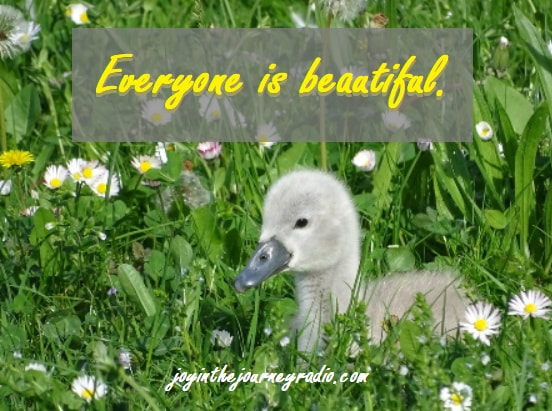




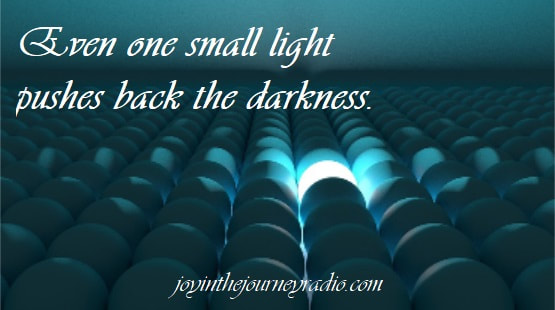
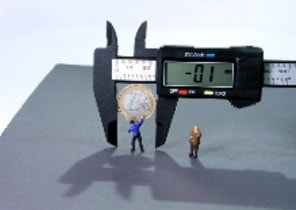

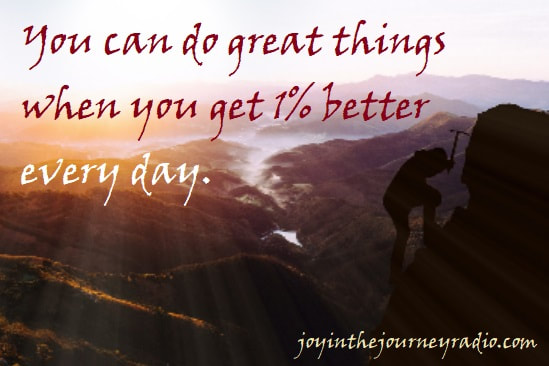




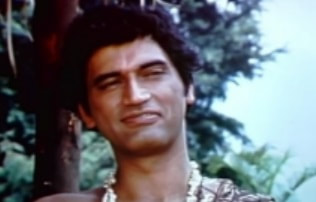



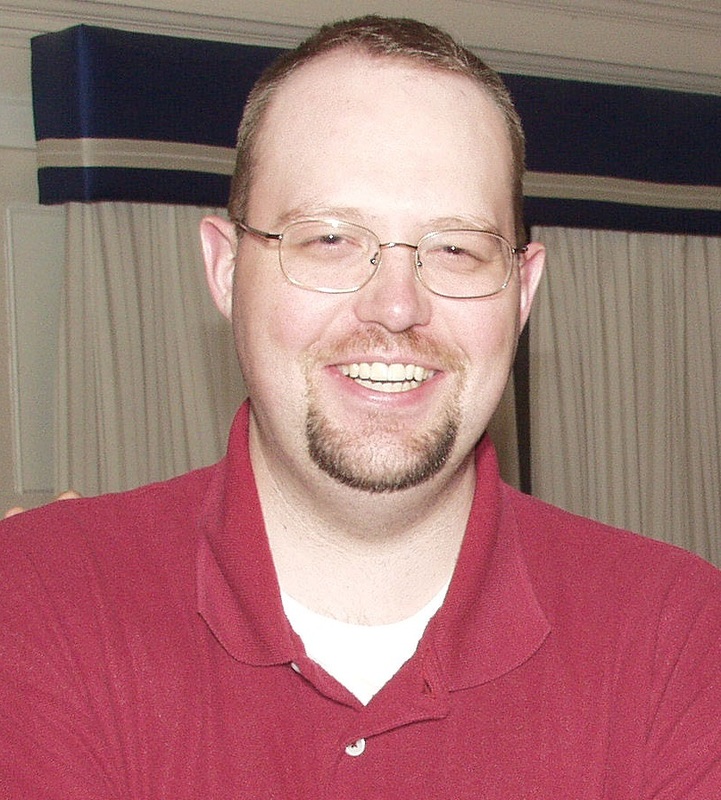
 RSS Feed
RSS Feed